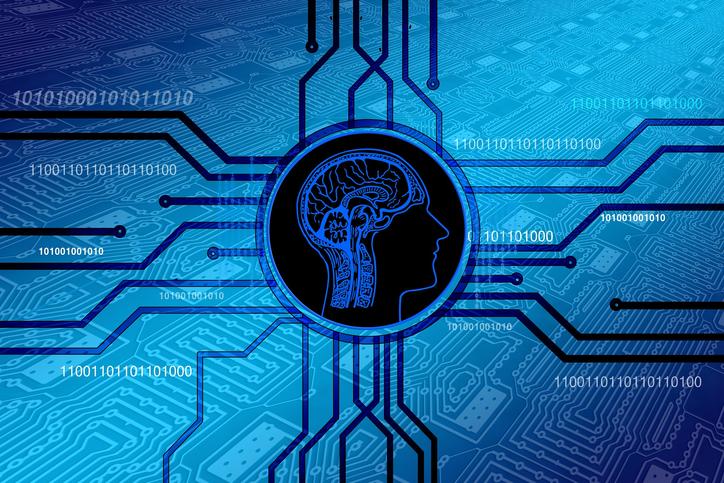
A summit to act on Artificial Intelligence: an international summit for an ethical, sustainable and inclusive AI
Among the must-attend international events of 2025, France is getting ready to host the Summit for Action on Artificial Intelligence on 10 and 11 February, bringing together heads of state and government, international organisations, businesses, researchers and academics, artists and more in Paris. The aim is to develop concrete action for a reasoned development of AI, guaranteeing economic progress, environmental impact and the general interest.
« La révolution de l'IA s’apprête à transformer les emplois, l'éducation, la culture, les économies à travers le monde ». C’est en ces termes que le site d’information présidentiel évoque le contexte de ce nouveau Sommet international qui fait suite aux Sommets de Bletchley Park (novembre 2023) et de Séoul (mai 2024), mais qui s’inscrit dans une perspective plus large puisque « un grand nombre de pays et de secteurs seront représentés afin de rendre ce sommet aussi inclusif que possible ».
Cinq axes majeurs pour servir l’intérêt général
Le Sommet de Paris, qui milite pour une « IA éthique, durable et inclusive », s’articulera ainsi autour de cinq « axes majeurs » qui ont constitué la base du travail préparatoire.
Le premier de ceux-ci, « l’IA au service de l'intérêt général » ou de « l’intérêt public ». L’IA devrait en effet, selon les organisateurs du Sommet, être considérée comme « une technologie politique à orienter vers le progrès économique, social et environnemental ». Le Sommet aura donc pour objectifs :
- d’encourager le « développement de modèles moins coûteux » pour servir cet intérêt général ;
- de favoriser l'accès à des « données structurées et respectueuses des libertés individuelles » pour permettre des avancées concrètes notamment dans les domaines de la santé et de l'environnement ;
- de développer une plus grande distribution de l'accès à la puissance de calcul ;
- de former les futurs talents au niveau mondial.
Deuxième axe majeur, « l’avenir du travail » qui part du principe que « l’intégration de l’intelligence artificielle transforme les marchés du travail, le contenu des emplois, des tâches et manières de travailler ». Dans ce contexte, le Sommet pour l’Action sur l’IA a pour ambition de faciliter « des échanges internationaux sur l’avenir du travail et de s’appuyer sur des initiatives existantes », dans le but notamment :
- d’améliorer « notre compréhension des systèmes d’IA et de leurs usages » pour mieux anticiper leurs conséquences sur le monde du travail, la formation et l’éducation ;
- de promouvoir des déploiements de l’IA « au service de la productivité du développement des compétences, et du bien-être au travail ».
Troisième axe, « l’innovation et la culture ». Il s’agit ci de « stimuler l’excellence technologique au service de l’innovation et de la création artistique ». Toutefois, souligne le site d’information, « si l’IA a déjà permis d’accélérer la création et la diffusion de biens culturels, elle remet parfois en cause le modèle économique de la création et la rémunération de la propriété intellectuelle ».
Dans ce cadre, le Sommet permettra de :
- débattre du partage « de la valeur et des mécanismes susceptibles de faciliter l’accès aux ressources essentielles pour le développement de l’IA » ;
- d’accorder une importance particulière, dans la continuité du Sommet de la Francophonie, à la « diversité culturelle et linguistique ». Une « approche partagée des détenteurs de données culturelles libres de droits pourrait jouer un rôle crucial sur ces sujets », ajoute le site.
Une nécessaire collaboration internationale
Quatrième axe de travail, « l’intelligence artificielle de confiance ». Notant que le développement rapide de l’IA est une « source de transformations profondes qui génèrent de nombreuses opportunités positives », le Sommet devrait également envisager les « risques considérables pour la continuité de nos modèles sociaux et économiques ». Ainsi, dans la lignée des sommets précédents, le Sommet pour l’Action sur l’IA aura pour but de « présenter de manière globale, ouverte et positive la détermination de la communauté internationale à développer la confiance dans l’IA ». A cet effet, l’action portera sur :
- la lutte contre la « manipulation de l’information », notamment sur les réseaux sociaux ;
- l’impact de l’IA sur la cybersécurité, et inversement ;
- l’identification et la maîtrise des risques élevés que pourraient engendrer un usage incontrôlé de l’IA ;
- la définition de standards de mesure de ces risques qui « pourraient être un point de convergence international ».
Enfin, dernier point qui découle des quatre axes précédents, la « gouvernance mondiale de l’IA ». Le Sommet de Paris, qui craint un « risque majeur de fragmentation » en matière d’intelligence artificielle, a en effet pour ambition de définir « un socle commun de gouvernance internationale de l’IA ». Cette nouvelle « architecture mondiale, définie collectivement », prendra en compte les initiatives existantes afin de promouvoir d’autres actions à l’échelle internationale, telles que :
- la recherche permanente d’un « consensus scientifique robuste sur le développement des technologies d’IA, ses usages et ses conséquences sur nos sociétés » ;
- la définition d’un cadre permettant la création de « solutions ouvertes et de normes techniques et d’audit interopérables » ;
- la convergence de « standards et de politiques publiques propres à l’IA ».
Related contents
Recommended News




















































